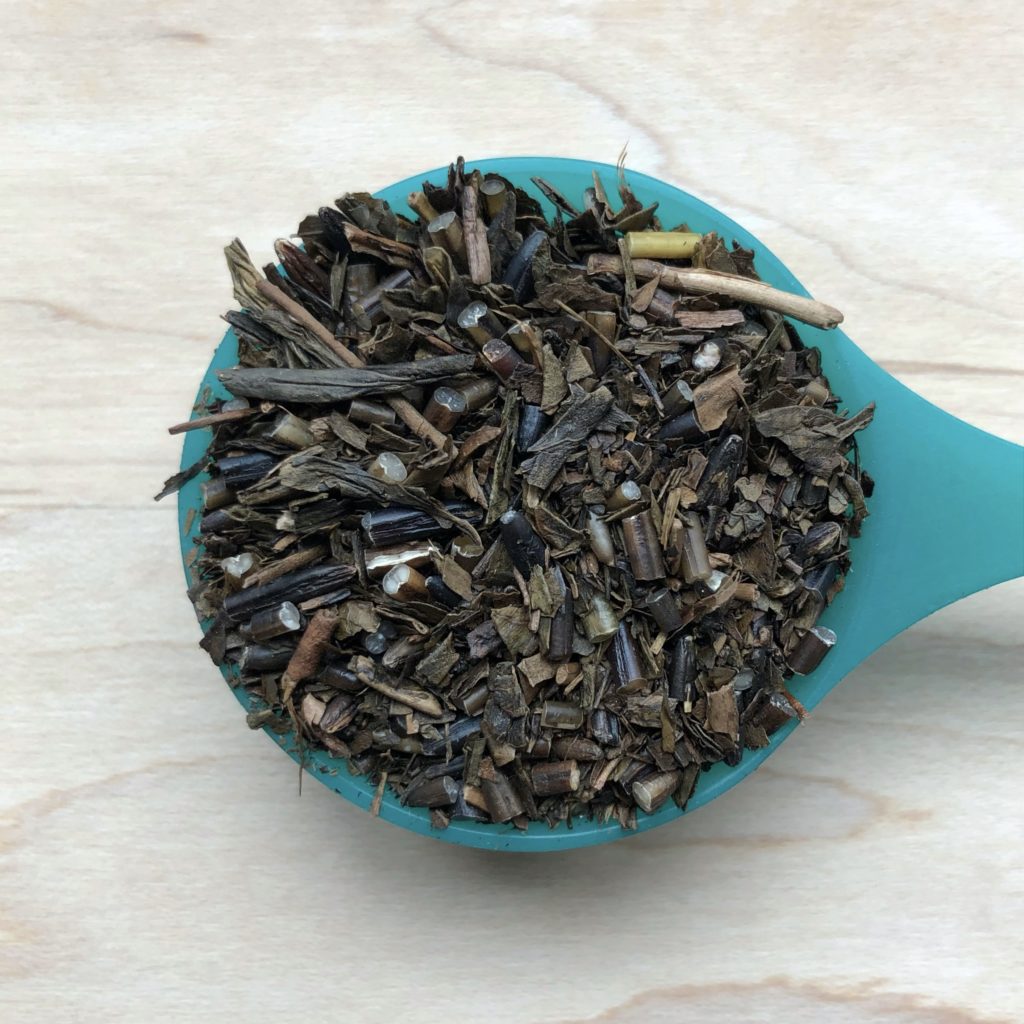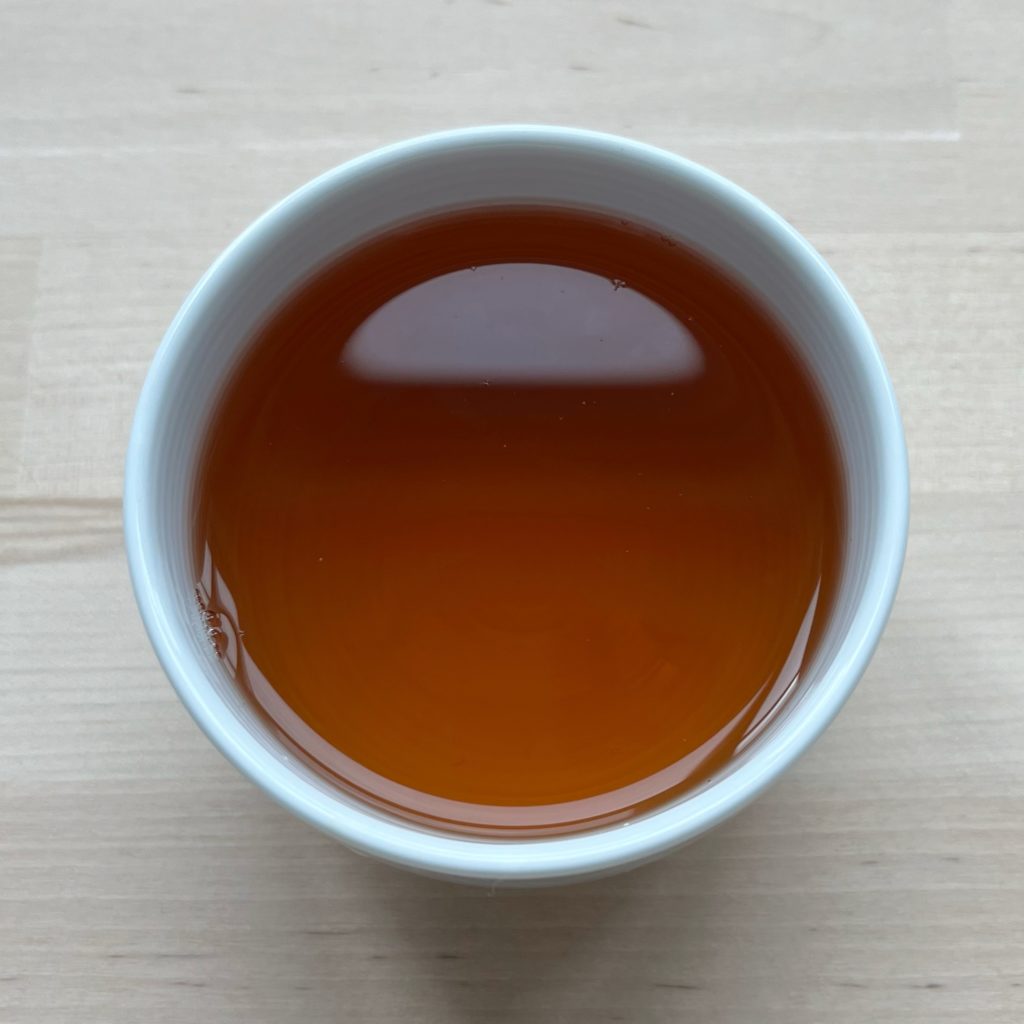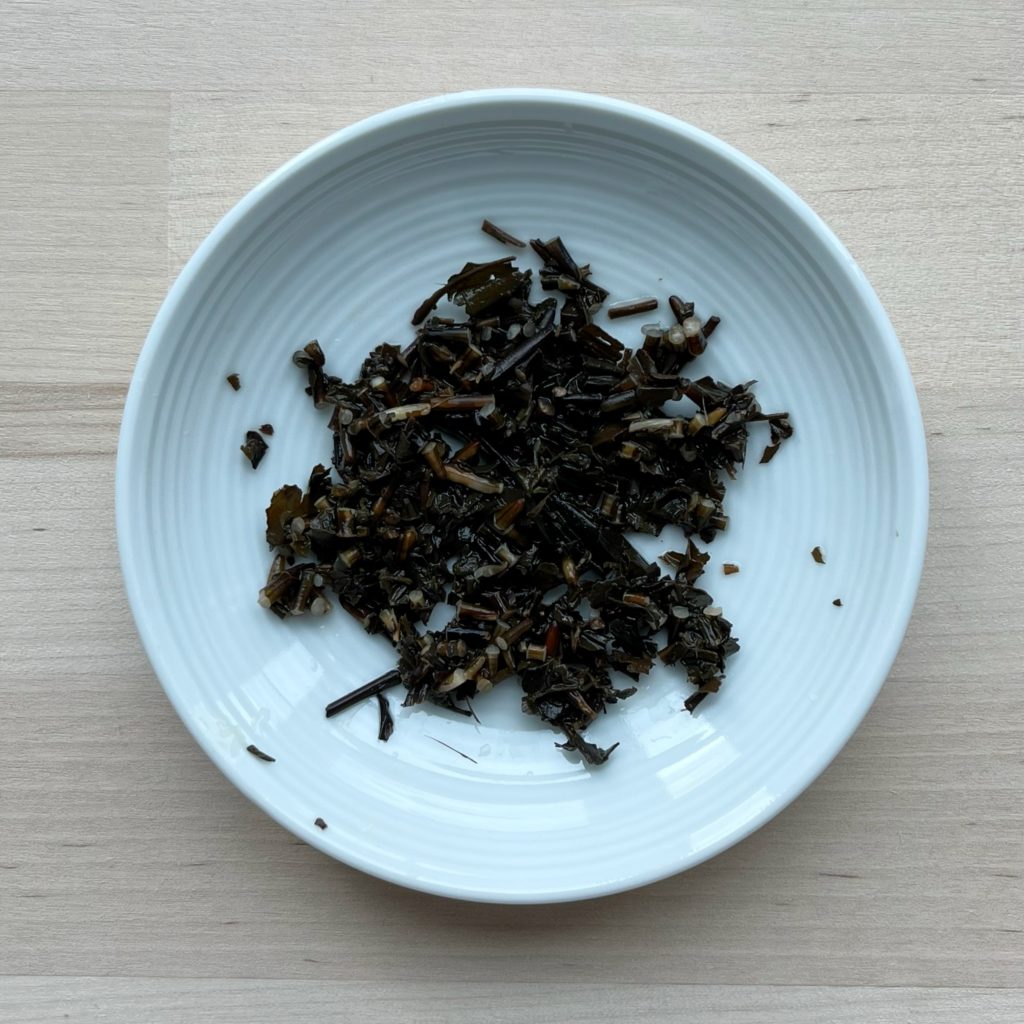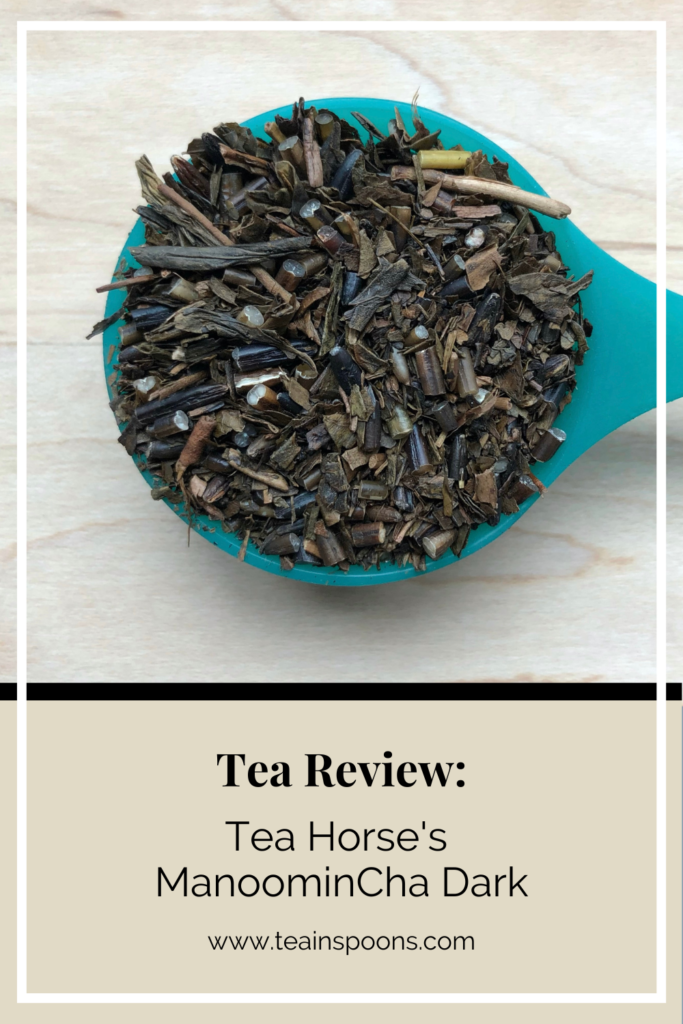
A few months ago, I tasted wild rice or Manoomin in Ojibwe from Tea Horse, a Canadian Indigenous brand. I enjoyed the taste of the rice, and wanted to see how it would pair with Japanese roasted green tea, hojicha!
Description: “Hojicha (roasted green tea) and roasted wild rice are combined to create a complex and full-bodied mocha-flavoured experience.”
Instructions: Boiling water | 1 teaspoon | 5 minutes or longer

Review: Hojicha has a special place in my heart because when I was in Japan as an intern at Kyoto Obubu Tea Farms, it was roasted in a factory nearby and the roasted smell filled the air. Having tried Manoomin, its nutty and roasted taste seemed like it would pair well with hojicha which has a similar taste profile.
After brewing for 5 minutes, the liquor had a cooked rice and roasted charcoal smell and an amber-yellow colour, as expected from a hojicha. The dominant taste was the roasted green tea flavour, however, it had a nice nutty sweetness from the roasted rice. The rice tasted like pan-fried rice and had a nutty taste. When cooled, the liquor was roasted and dried at the back of the throat.

The wet blend smelled woody, charcoal and roasted like hojicha and was made up of broken roasted leaves and rice.
Overall, this was a nice tea blend and despite a roasted taste from the rice and hojicha, it wasn’t overwhelming. However, I found the Manoomin taste was a bit lost. Brewing for longer brought out more astringency, so I enjoyed brewing at 5 minutes so the roasted taste was more balanced with the sweet rice taste. This would be a nice blend for people who enjoy roasted teas (3.5/5 rating).

